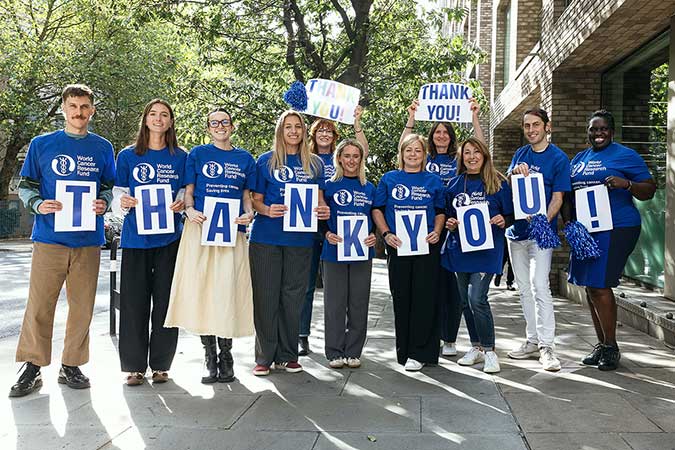Grant title
Effect of a 12-week exercise training intervention on health related quality of life in patients after surgery for oesophageal cancer
Background
Oesophageal cancer (OC) has for some years been the fastest growing malignancy in the western world. Survival of OC has somewhat improved over the past 10–15 years as a result of better surgical techniques, peri-operative care, and chemo- and/or radiotherapy regimens. OC surgery is, however, an extensive procedure and the risk of post-operative complications is high. Patients after surgery are often fatigued and have a decreased health-related quality of life (HRQoL) and physical functioning in the short- and long-term.
Therefore, interventions that potentially increase HRQoL are strongly needed. Exercise training interventions (eg endurance training on a bicycle or muscle strength training) have been shown to improve HRQoL in patients with various types of cancer. So far, the effect of exercise training for patients with OC has not been investigated yet.
Aims and objectives
The Physical ExeRcise Following Oesophageal Cancer Treatment (PERFECT) Study investigated the effect of a 12-week physical exercise programme on quality of life, physical fitness and fatigue of patients after surgery for oesophageal cancer.
Methods
Eligible patients were either randomised to the exercise programme or to usual care. Patients in the exercise group followed the supervised combined endurance and resistance programme at a physiotherapy centre near their home twice weekly. In addition, they were asked to be physically active for 30 minutes per day at the other days. Study measures were assessed at baseline, after 12 weeks (post-intervention) and after 24 weeks. In an add-on study, we also assessed patients’ body composition and risk of being malnourished.
Results
A total of 120 patients were included and randomised to an exercise intervention or usual care group. Patients in the exercise intervention group participated in 96% of the supervised exercise sessions and compliance with all parts of the exercise program was high (> 90%).
Physical fatigue was lower in the exercise intervention group, albeit not significantly. There was statistically significant improvement in cardiorespiratory fitness following the exercise intervention compared with the usual care group.
We also found that patients in the first year after oesophagectomy are at risk of a suboptimal energy and protein intake, especially when increasing physical activity levels as part of an exercise programme. The results suggest that exercise has a small positive effect on the risk of being malnourished and weight loss was mainly loss of fat mass and not fat free mass.
Conclusion
Overall, patients were able to complete an intensive supervised exercise program after OC treatment, which led to small but significant improvements in several aspects of quality of life and cardiorespiratory fitness. Our results suggest that supervised exercise is a beneficial addition to routine care of patients with OC. These findings highlight the need for specific nutritional recommendations during oncological exercise programmes.
Impact
The group have obtained many exercise grants following this World Cancer Research Fund grant and received additional funding for the PERFECT study. During the grant the group established strong international collaborations in the field of exercise-oncology. The next step for this research is the implementation in clinical practice.
Grant publications
- Brouwer, D. R., et al. “Randomised clinical trial on the effect of a supervised exercise program on quality of life, fatigue, and fitness following Oesophageal cancer treatment (PERFECT study).” Journal of Clinical Oncology, vol. 38, no. 15, 2020, ascopubs.org/doi/10.1200/JCO.2020.38.15_suppl.12055.
- Slieker, J. C., et al. “Supervised exercise after oesophageal cancer surgery: the PERFECT multicentre randomised clinical trial.” British Journal of Surgery, vol. 108, no. 6, 2021, pp. 690–698, pubmed.ncbi.nlm.nih.gov/33837380/.
- Van der Schaaf, M., et al. “Effects of exercise after oesophagectomy on body composition and adequacy of energy and protein intake: PERFECT multicentre randomised controlled trial.” Clinical Nutrition, 2023, pmc.ncbi.nlm.nih.gov/articles/PMC10392959/#zrad057-s3.



